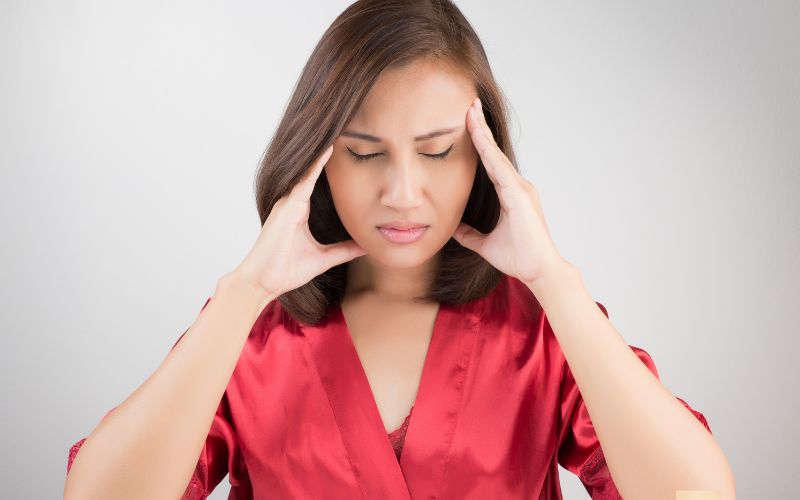Can Stress Cause Joint Pain? Mind-Body Insights
1st May 2025
Modern life can feel overwhelming, whether it is work-related pressure, personal challenges, or the constant influx of information from digital devices. While most people know the emotional and psychological toll stress can take, fewer realise that stress can manifest physically, and in surprising ways. But can stress cause joint pain? The response is more nuanced than a yes or no.
Let's explore the connection between joint pain and stress, discussing how emotional stress affects the body, the science of this connection, and how you can manage or reduce stress-caused joint pain.
Find the natural way to radiant health – learn about Vital Joint Support today!
Understanding the Stress Response
Stress causes a chain reaction of physiological responses in the body. When we sense danger, actual or perceived, our brain instructs the release of hormones like cortisol and adrenaline. These hormones prepare the body for a "fight-or-flight" reaction, increasing alertness, elevating heart rate, and shifting blood flow to vital organs and muscles.
Although this reply is helpful in brief doses, ongoing stress keeps the body in a heightened alarm state. Over the long term, this can contribute to inflammation, immunosuppression, and muscle tension, which can compound or even instigate joint pain.
The Link Between Stress and Joint Pain
Inflammation: Chronic stress is acknowledged to elevate pro-inflammatory cytokine levels, substances released by some immune cells. Cytokines have the potential to cause joint inflammation and exacerbate diseases such as rheumatoid arthritis or osteoarthritis.
Muscle Tension: Stress tightens muscles, particularly in the neck, shoulders, and back. This ongoing muscle tension may strain ligaments and cause joint pain or discomfort. Chronic poor posture and muscle imbalances from stress can eventually contribute to joint wear and tear.
Behavioral Impact: Stress can result in unhealthy lifestyle habits, for example, poor dietary habits, physical inactivity, smoking, or excessive alcohol intake. These habits can increase joint pain and inflammation. For example, physical inactivity can cause joint stiffness, and weight gain due to poor dietary habits stresses the joints.
Increased Sensitivity to Pain: Individuals suffering from chronic stress can become more sensitive to pain. The brain interprets pain signals differently when stressed, usually enhancing the perception of discomfort. This implies that mild joint pains feel worse when stressed.
Stress and Pre-Chronic Joint Conditions
For people with pre-existing joint problems like arthritis, fibromyalgia, or lupus, stress can be especially cruel. Emotional stress can set off flare-ups, worsening symptoms. Studies indicate that patients with these diseases report a definite relationship between emotional distress and heightened physical pain.

In fibromyalgia, for example, stress is not only a pain trigger but also contributes to the development and severity of the disorder. The same applies to autoimmune diseases, where stress can enhance immune dysfunction, increasing inflammation and joint pain.
Psychosomatic Joint Pain: When the Mind Affects the Body
At times, joint pain occurs with no known physical reason. The pain is still real and frequently results from emotional tension. Joint pain may be caused by anxiety and depression, which create bodily feelings that replicate the symptoms of bone weaknesses.
This is referred to as somatisation, the process of psychological distress expressing itself in the form of physical symptoms. In others, the pain can be generalised and mimic arthritis or other joint conditions, even with no identifiable inflammation or structural injury.
How To Manage Stress-Related Joint Pain
Understanding that stress could contribute to joint pain is the first step toward relief. Here are practical strategies to help manage both stress and the physical discomfort it may cause:
Exercise Regularly
Physical activity releases endorphins, the body’s natural painkillers, and mood elevators. Low-impact exercises like swimming, yoga, and walking can reduce joint stiffness while lowering stress levels.
Practice Mindfulness and Meditation
Mindfulness practices like deep breathing, progressive muscle relaxation, and meditation have been found to decrease cortisol levels and ease muscle tension. These practices induce relaxation and have been proven to enhance pain tolerance.
Improve Sleep Hygiene
Poor sleep can worsen stress and joint pain. To optimise recovery and pain control, set a consistent sleep schedule, restrict screen use before bedtime, and develop a restful sleeping environment.
Eat an Anti-Inflammatory Diet
A healthy diet of omega-3 fatty acids, antioxidants, and fibre will help minimise inflammation. Avoid processed foods, sugar, and too much alcohol, which also promote joint health.
Seek Professional Assistance
If stress and joint pain interfere substantially with your life, seeing healthcare professionals can be beneficial. A therapist will assist in dealing with the underlying emotional causes of stress, while a rheumatologist or physical therapist can offer specific strategies for coping with joint pain.
Stay Social
Isolation can exacerbate stress and its physical consequences. Staying socially connected through friends, family, or support groups can enhance mental health and offer emotional support.
When To See A Doctor
While stress may contribute to joint discomfort, it's always a good idea to rule out any underlying medical conditions. Persistent or worsening joint pain should not be ignored. A medical professional can help determine if the pain results from stress, an autoimmune disorder, arthritis, or another factor.
If you have any of the following, seek medical help:
- Swelling or redness in the joints
- Pain that lasts more than a few weeks
- Joint stiffness, particularly in the morning
- Fever or sudden weight loss
Final Thoughts
Body and mind go hand in hand. Stress, though emotional, affects the whole body, including the joints. Learning about how stress can affect the health of your joints is important regardless of whether you're under constant stress or experiencing a temporary bout of stress.
By recognizing this link and embracing strategies to cope with stress, you can take steps toward easing joint pain and enhancing your overall health. Remember, your mental health is as important as your physical health—and nurturing both is the key to a healthier, more comfortable existence.
Frequently Asked Questions
Can anxiety cause joint pain?
Yes, anxiety can cause increased tension in muscles and inflammation, both of which may cause joint pain. It can also increase your pain sensitivity.
How do I know if stress is causing my joint pain?
If your joint pain increases when you are under stress and decreases with relaxation or stress management, it could be due to stress. Nevertheless, it is advisable to see a doctor to eliminate other causes.
What kind of doctor do I need to see for joint pain caused by stress?
You might find seeing a mental health professional and a rheumatologist helpful. A therapist can assist with emotional stress, and a rheumatologist can assess and treat joint problems.






